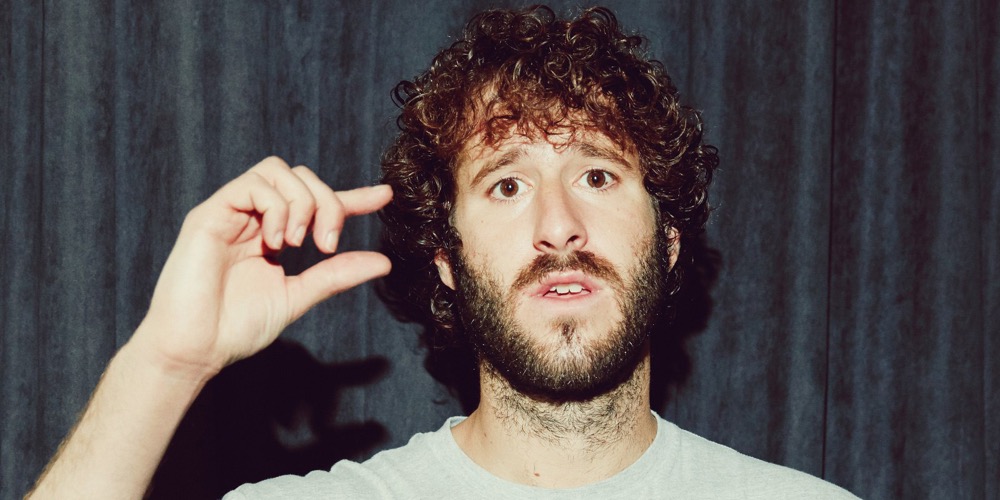News
Activists release letter condemning SPB, student body for Lil Dicky selection
A group of 16 students, many of them leaders in minority advocacy groups on campus, released an open letter Thursday condemning Social Programming Board, and the Washington University student body more generally, for the selection of white rapper Lil Dicky to headline this semester’s WILD.
The Sept. 14 announcement that the rapper—whose comments in a 2013 blog post and elsewhere have been characterized as offensive and potentially racist—will headline the twice-yearly concert quickly drew criticism from a variety of sources, eventually prompting an apology from SPB, released Sept. 27. In this statement, SPB’s executive board apologized for the process not being “sufficiently inclusive and responsive” and outlined changes to the WILD artist selection process.
 Courtesy of W Magazine
Courtesy of W Magazine Comedic rapper Lil Dicky, known for songs including “$ave Dat Money,” will perform at Brookings Quad Friday.
Lil Dicky’s impending performance has led to student concern, as well as to SPB issuing a public apology statement.
The authors of the letter consider the changes—which include consulting the Center for Diversity and Inclusion and the Diversity Affairs Council before selecting certain artists—a step in the right direction, but feel the apology is too little, too late.
“In the weeks following their announcement of Lil Dicky, SPB has dealt with the following uproar very poorly. Instead of earnestly listening to the black community’s legitimate concerns, apologizing sincerely, and attempting to redress the problem, SPB has attempted to shirk responsibility for their actions,” the letter read. “From the first day the announcement was made, students voiced their concerns and frustrations through social media. Those concerns went largely unaddressed by SPB, despite numerous attempts to directly pull them into the conversation.”
In addition to SPB, the letter also criticizes the student body as a whole.
“We must also hold the student body of this University more generally culpable for this terrible decision. Ultimately, the survey results of the student body were a deciding factor in bringing Lil Dicky to campus,” the letter read. “It is disturbing that so many of our classmates—the people we study, work and live with—chose a known racist to represent them on the main stage of WILD. In making that decision, our fellow Wash. U. students either did not consider the effects that their votes would have on their black friends and classmates, or worse, knew that their choice would offend us, and did not care.”
Aside from decrying SPB and the student body’s response, the letter recommended further changes to the selection process, asking that SPB disclose the full mechanics of the procedure from start to finish.
Many of these complaints had been raised before the letter’s publication, including at a Student Union Senate meeting Oct. 3, where Senate was given the chance to co-sign the letter. Senate ultimately decided not to support the letter, with only three senators voting in favor of the resolution.
Junior Clayton Covington, who attended the session and helped craft the letter, felt that senators were missing the point of the letter, noting that conversation centered around concerns regarding phrasing, rather than on the student government allying with the black community.
“Specifically, earlier it was stated that, ‘We don’t like this because this uses vernacular language.’ You should realize that that’s racially coded; that’s coded in terms of class, and that’s coded in terms of educational standards,” Covington said at the Senate session Tuesday. “I have an upbringing different than other black people on this campus. We’re a very diverse, non-monolithic community. If your qualm is with different points of speech because of the vernacular, because they don’t exert the speech you prefer, that is racist, straight up.”
Although presented with the opportunity to undertake a roll call vote, where each senator’s vote would be recorded individually, Senate decided to proceed with a regular vote instead, meaning that the official report of the vote lists only total votes for and against as well as abstentions.
“At the emergency Senate meeting on Sept. 17, Senate asked the student body to have grace and believe that they would work towards improvement in terms of transparency and accountability,” freshman Mia Hamernik wrote in a statement to Student Life. “Upon being given the first opportunity to prove to the student body that Senate was abiding by its claims, they overwhelmingly shut down said opportunity…By not passing the resolution, Senate was telling the student body that they preferred anonymity and safety from constituent criticism to being held accountable for their decisions.”
According to Hamernik, the disparity between Senate’s words and their actions is a common theme.
“Ultimately, what Senate says is not important. Words are a way to save face, and I’ve seen this pattern more often than not in Senate. What truly matters is their votes because those are what will translate into very real decisions that impact the student body they are meant to represent. Not showing a willingness to make their voting decisions public sends a very clear message,” Hamernik wrote.
Additional reporting by Aiden Blinn.
